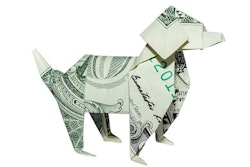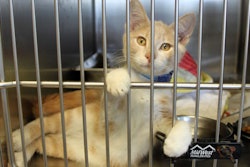
Both human births and new pet adoption numbers may drop due to the pandemic in the United States. Economists with the Brookings Institute believe COVID-19 may lead to a “baby bust,” as people choose not to procreate during the pandemic. Similarly, Yale-National University of Singapore environmental scientists found evidence that climate change causes potential U.S. parents to fear for the future well-being of their existing, expected or hypothetical children. Meanwhile, at U.S. animal shelters, pet adoption numbers overall remain down for 2020 compared to 2019, despite high rates of adoption.
With declining numbers of real babies and fewer fur babies, the pet food industry faces potentially conflicting trends. In various wealthy, industrialized nations, younger couples increasingly tend to use dogs and cats as training for real children, delaying their first child until much later than their grandparents may have. These fur babies tend to be high value customers for pet food companies. So, if more people delay having children by spoiling a Chihuahua, the pet food industry may find an upside from the baby bust.
On the other hand, children can encourage pet ownership, even during the pandemic. Packaged Facts analysts surveyed pet owners in late April and early May. Overall, 8% of adult respondent brought a pet into their home because of COVID-19. However, 19% of households with children under age six got pandemic pets. The rate rose to 10-11% among households with children ages six–17. A pandemic related baby bust also means fewer households adopting a new best friend for their youngsters.
Delays to parenting due to pandemic and climate change
That decline in babies could be between 300,000 and 500,000, according to Brookings economists. They based their estimates on data from the Great Recession (2007-2009) and the Spanish flu pandemic of a century ago. Contrary to wink-wink, nudge-nudge jokes about what happens during blizzards and blackouts, being stuck at home doesn’t seem to statistically relate to the birth rate. On the contrary, economic uncertainty, health fears and similar factors tend to make people less frisky.
Another global dilemma, though on a longer timeline, may also contribute to declining birth rates in the U.S. Fears about the climatic consequences of deforestation, fossil fuel combustion and other components of climate change may contribute to ongoing declines in the U.S. birth rate. Among 607 U.S. residents between the ages of 27 and 45, 59.8% reported being very or extremely concerned about the carbon footprint of procreation. What’s more, 96.5% of respondents were likewise concerned about the well-being of their existing, expected or hypothetical children as the effects of climate change become increasingly disruptive and destructive.
Shelter pet adoption numbers down in 2020
As for pets in the pandemic, animal shelter adoption numbers may have remained lower throughout 2020 compared to 2019. The latest data from animal shelter data management agency PetPoint suggests October 2020 pet adoption numbers remained lower year-over-year. Shelters reported a decrease in adoptions of 11% for cats and 19% for dogs in October, Steve Zeidman, senior vice president for Pethealth, wrote in an email.
Much of the decline in overall pet adoption numbers resulted from fewer pets being available for adoption during the ongoing COVID-19 pandemic. Between March 13 and September 18, 2020, the number of dogs and cats entering shelters decreased. Dog numbers fell by 34% and cats by 28%. Overall during that period, 951,667 dogs and cats entered shelters.

















